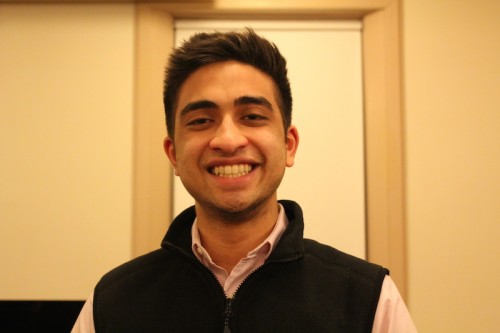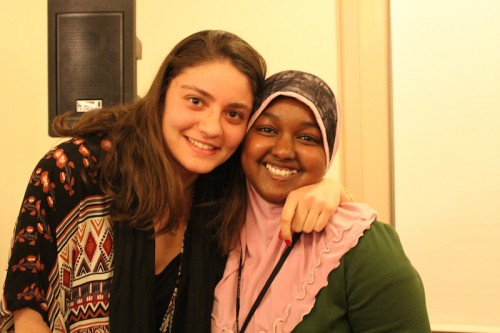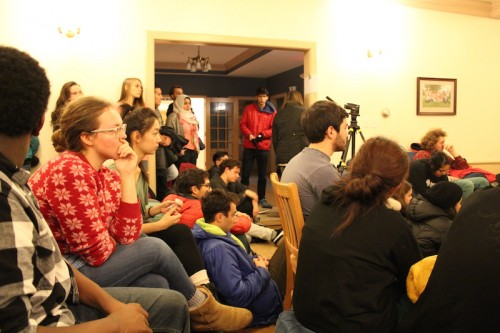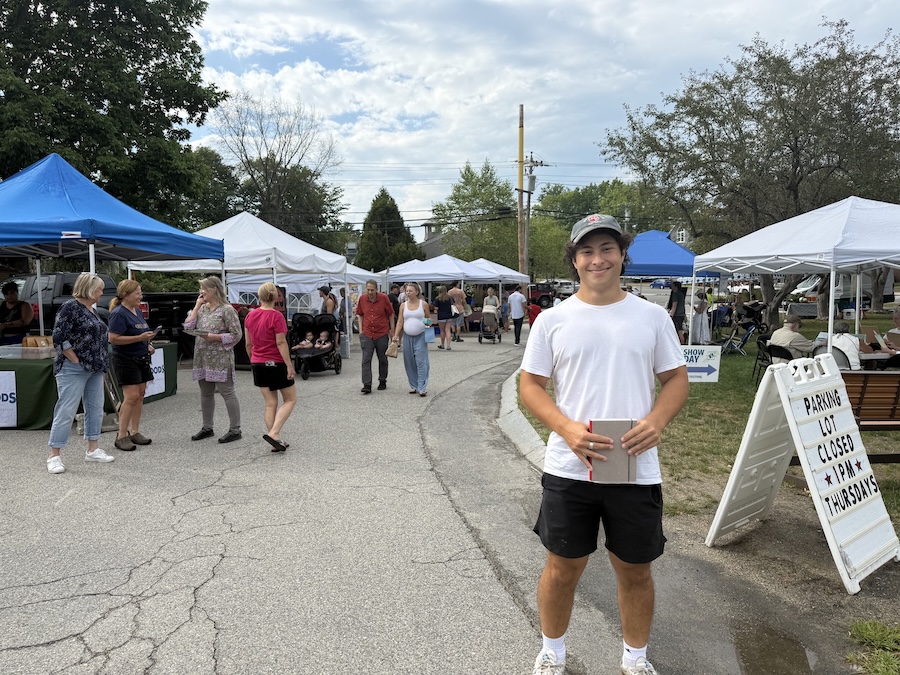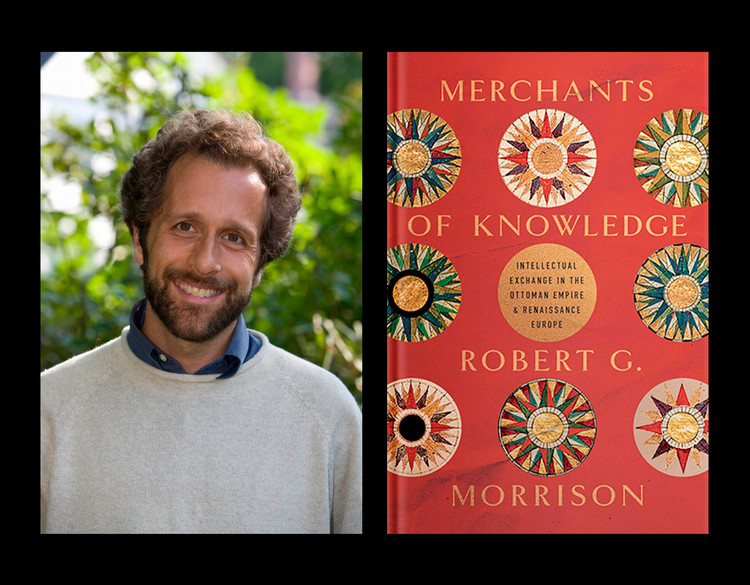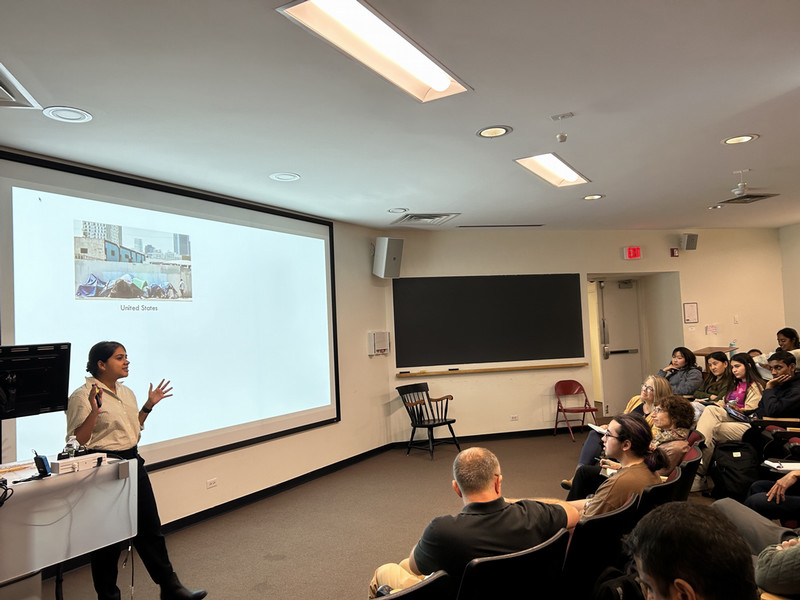A Campus Conversation: How Islamic is the Islamic State?
By Katherine Churchill '16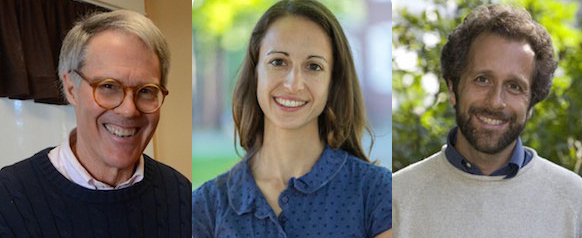
Students gathered recently in the living room of MacMillan House to hear a panel of Bowdoin faculty and students discuss Islam and the Islamic State. Reverend Bob Ives, Bowdoin’s director of religious and spiritual life, moderated the panel, which consisted of Professor of Religion Robert Morrison,
Assistant Professor of Government Barbara Elias Klenner, and three students: Mariama Sowe ’18, Lillian Gharios ’18 and Irfan Alam ’18. Sowe is the president of the Bowdoin Muslim Students Association.
Ives began the discussion by asking the straightforward question “What is ISIS?” Elias answered that ISIS as a political insurgency, or an organization that uses a combination of politics and violence to achieve some political end.
Ives followed by asking about the goals of ISIS. Irfan answered by saying that ISIS seeks to control land through violence. Irfan talked about how ISIS attempts to root its values in Muslim religious heritage despite the fact that so many of its actions conflict with the morals forwarded by the Qur’an.
As the panel moved into discussing the Paris attacks of a few weeks ago, panelists discussed the meaning of jihadism in Islam and how it had been misappropriated by ISIS. In fact, panel members asserted, the Qur’an lays out specific, narrow guidelines for when violence is acceptable and only endorses defensive violence. Sowe noted that this was an example of how ISIS, rather than considering the Qur’an in context, only uses convenience sections to justify its violence. She went on to discuss how the Qur’an talks at length about the importance of values like loving and peace.
Morrison then discussed the Islamophobia that ISIS’s attacks in Paris have induce in the West. He emphasized that non-extremist Muslims uniformly condemn ISIS and he lamented the fact that many conservatives in the United States have criticized Muslims for “not speaking out” about their violence. Morrison argued that Muslims around the world do speak against ISIS but that they do not receive adequate press coverage.
Elias provided political context surrounding the creation of ISIS and pointed out its historical origins, noting that it was born out of a branch of Al Queda. She discussed the sectarian politics of Syria and Iraq following the 2003 invasion of Iraq. “Their brutality will be their end,” she added.
Toward the end of the evening, the students on the panel discussed their experiences with Islamophobia on and off campus, and the importance of fighting back against Islamophobia, which ISIS wishes to encourage. “In doing things like this [panel discussion], this is another way to fight ISIS,” said Sowe.
The panel was organized by Bowdoin’s Muslim Students Association as a part of the No Hate November Initiative.
